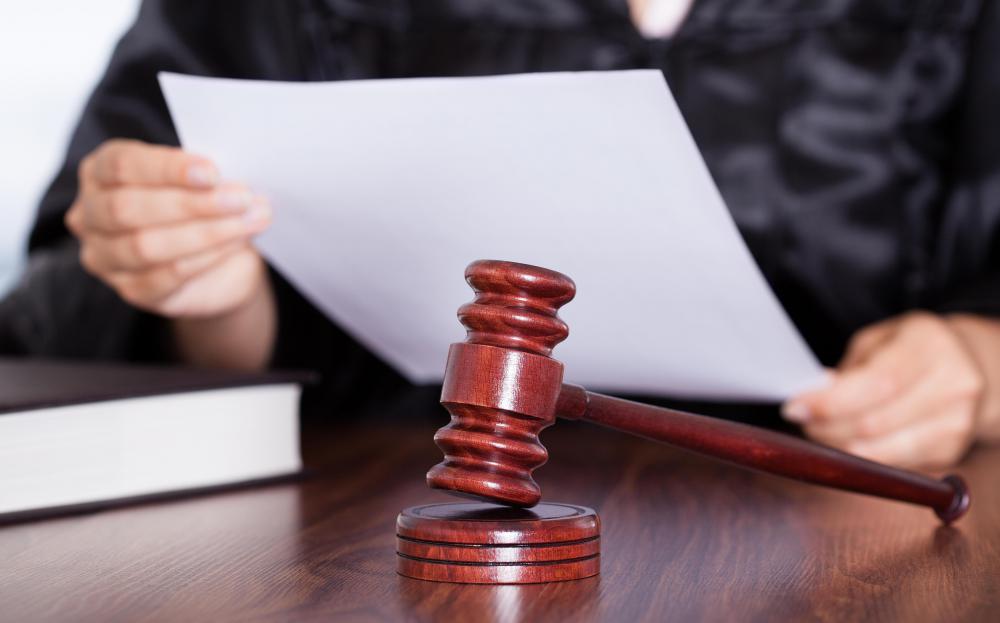At MyLawQuestions, we're committed to delivering accurate, trustworthy information. Our expert-authored content is rigorously fact-checked and sourced from credible authorities. Discover how we uphold the highest standards in providing you with reliable knowledge.
What is a Motion to Continue?
In court, a motion to continue is a written request for the postponement of a court proceeding made by one or both parties of a legal dispute. Courts have the option to grant or deny a continuance based on whether a just reason for delay exists. Many states, however, have implemented rules that help to speed up the trial process, which severely restrict the court’s latitude in granting a motion to continue. The primary reason for courts to allow continuances is to prevent a miscarriage of justice. The motion is denied if the judge in the case believes that the primary purpose for the motion is simply to delay the process, especially if such a delay harms the other party in the case.
When deliberating a motion to continue, the judge will consider several aspects of the case. These factors include the cause of the postponement, the applicant’s good faith efforts, the risk of prejudice to the opponent’s case, and the expected benefit to be gained by the requesting party. If the motion is granted, the judge will set a fixed duration for the delay, considering the rights of both parties, and will set forth any limitations or restrictions. If the foundation for the continuance ends before the expiration date of the order, the judge may revoke the order and compel that the trial move forward.

Lack of appropriate and thorough preparation for the case does not constitute grounds for a motion to continue. Proper grounds for a motion for continuance include illness of a party, change of legal counsel, absence of a witness or a piece of evidence, or an unavoidable surprise, for which one party has not had sufficient time to prepare a response. In some cases, a motion to continue is granted on the basis of waiting for the outcome of another proceeding that pertains to the issues or parties of the case. Sometimes such a motion may cite excessive press coverage of a case, which may affect the jury pool, as a reason for a continuance.

The Sixth Amendment to the United States Constitution ensures an individual who is accused of a crime the right to a speedy trial. In consideration of the Sixth Amendment, the Federal Speedy Trial Act of 1974 sets forth conditions governing the issuance of continuances in criminal proceedings. Trials cannot begin in less than 30 days from the date the accused first appears in court unless the defendant gives his written consent. On the other hand, judges deny many continuances that had been allowed prior to the passage of the Federal Speedy Trial Act in order to guarantee a speedy trial.
AS FEATURED ON:
AS FEATURED ON:













Discussion Comments
It is important to continue to attend all hearings or pretrial appearances that lead up to a decision on a continuance.
One very common cause for dismissal is failure to appear for scheduled court dates.
In many instances, a judge may let your case proceed, with or without you, meaning that a sentence or fine can be levied against you even if you are not in court.
Post your comments